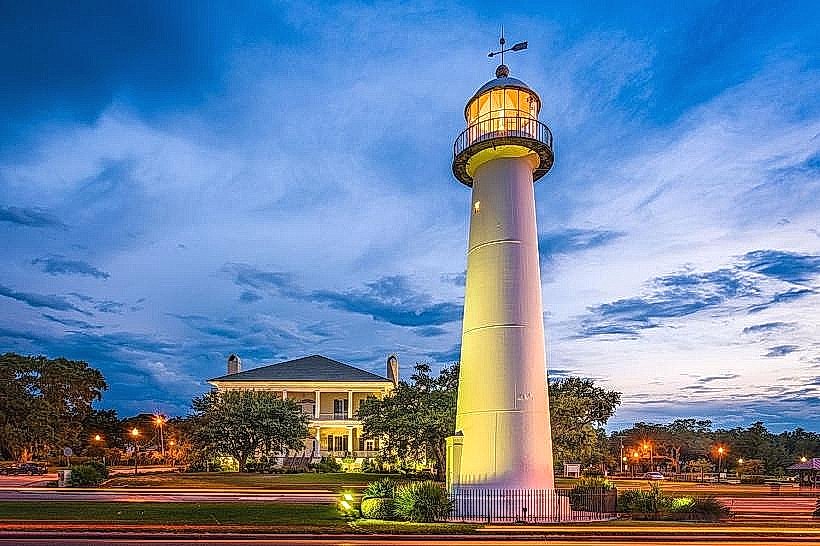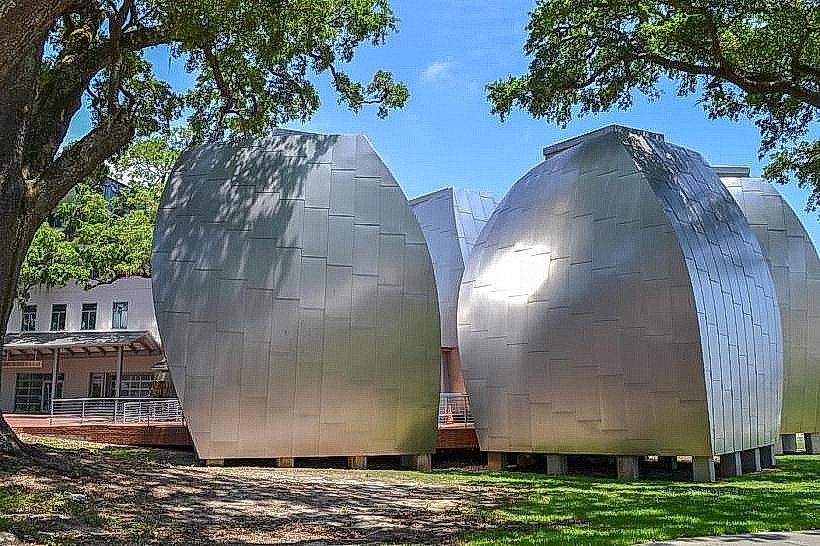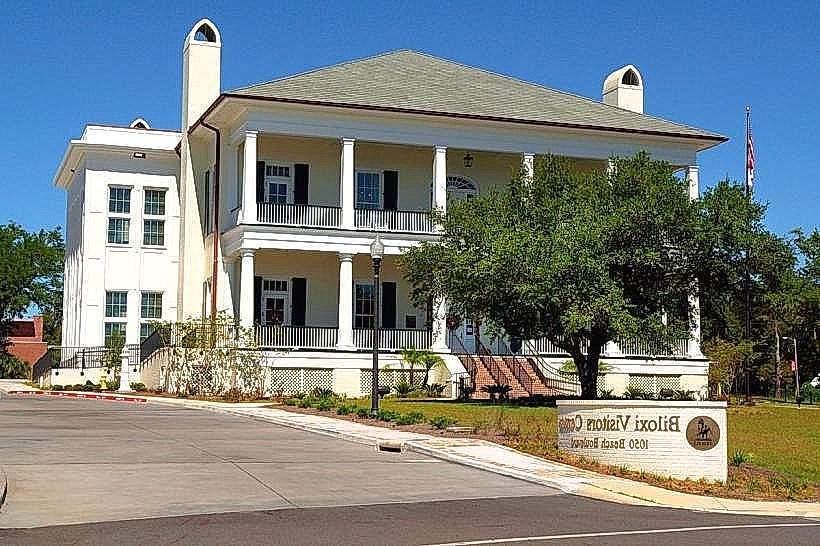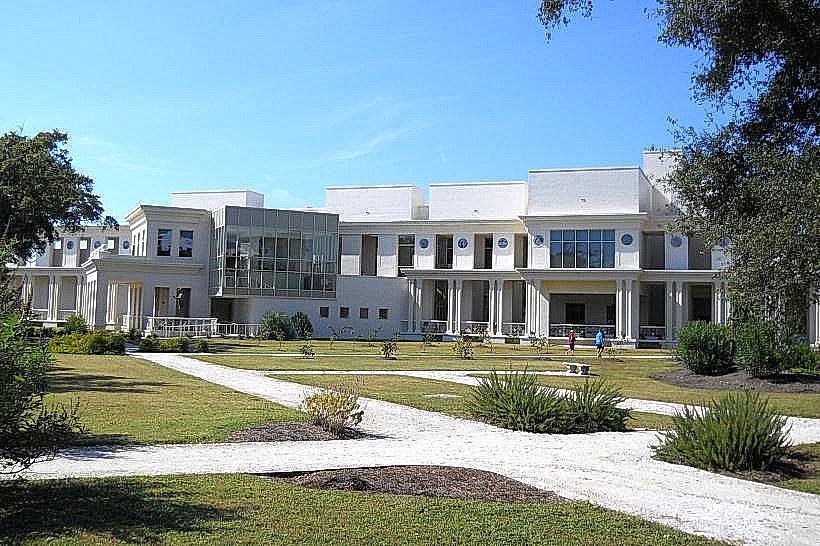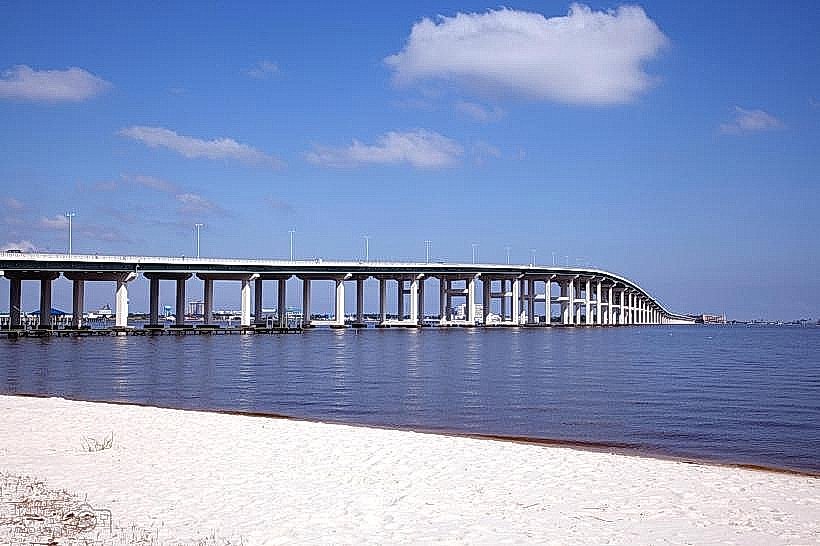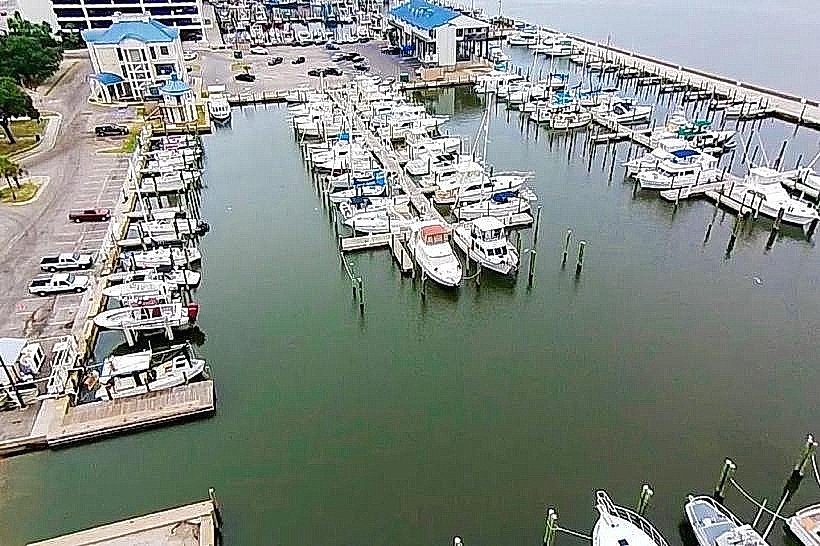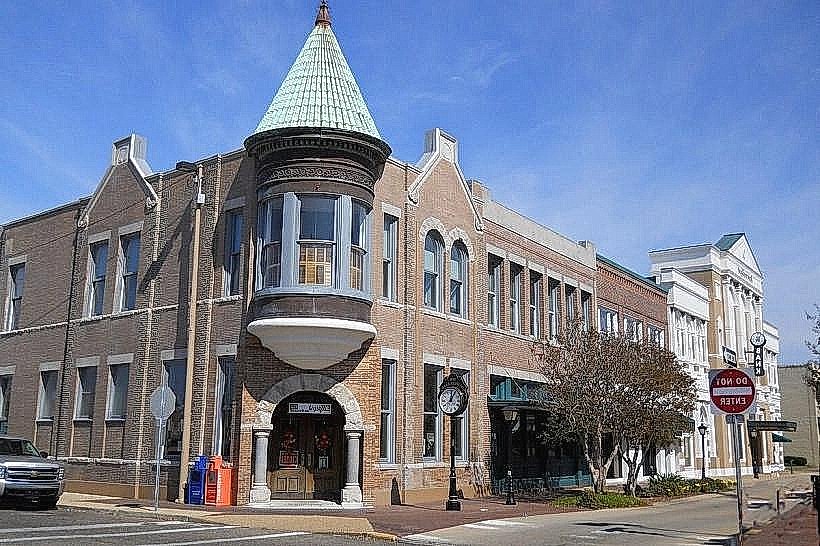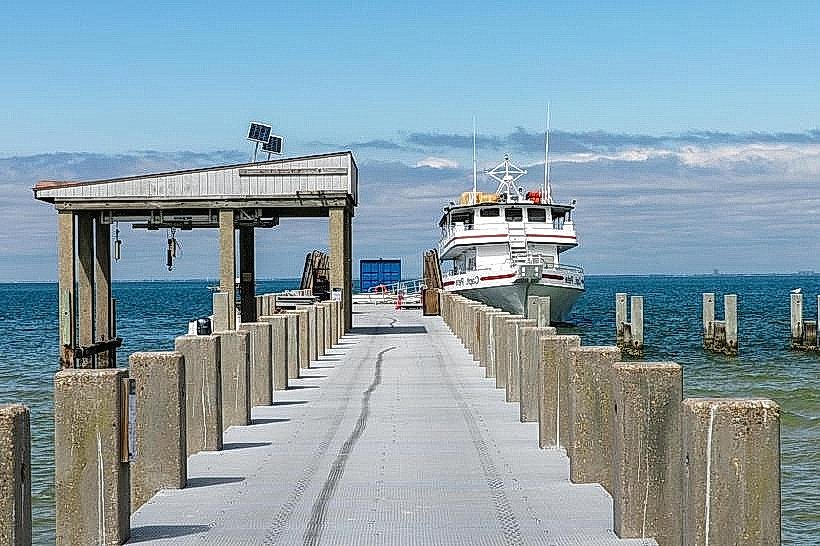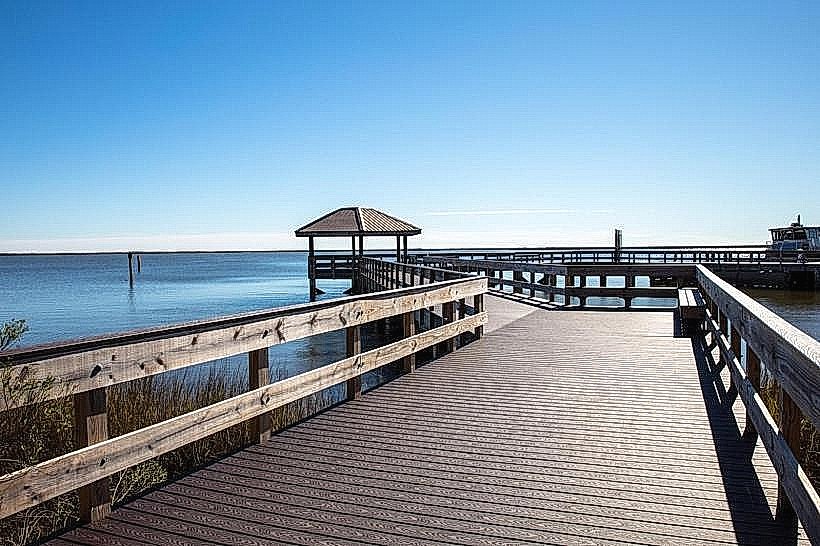Information
Landmark: Maritime and Seafood Industry MuseumCity: Biloxi
Country: USA Mississippi
Continent: North America
Maritime and Seafood Industry Museum, Biloxi, USA Mississippi, North America
The Maritime and Seafood Industry Museum documents the history of the Gulf Coast's maritime and seafood industries. It is located in Biloxi, Mississippi.
Visual Characteristics
The museum is housed in a single-story brick building. The exterior is painted a light blue. The building features a prominent white-columned portico at the main entrance.
Location & Access Logistics
The museum is situated at 119 North Beach Boulevard in Biloxi, Mississippi. It is approximately 1.5 miles east of the Biloxi City Center. On-site parking is available for visitors. The closest public transport stop is served by the Coast Transit Authority's Route 3, with a stop located 0.2 miles west of the museum.
Historical & Ecological Origin
The museum building itself was originally constructed in 1906 as a private residence. It was later acquired and repurposed to house the museum's collections, which focus on the region's fishing and shipbuilding heritage, dating back to the 18th century.
Key Highlights & Activities
Visitors can view exhibits on shrimping, oystering, and the history of Biloxi's casinos. A restored 65-foot shrimp trawler, the "Mighty Miss," is docked adjacent to the museum and accessible for tours. Demonstrations of net mending and knot tying are conducted on select days.
Infrastructure & Amenities
Restrooms are available within the museum. Limited shaded areas are provided by awnings over outdoor exhibits. Cell phone signal (4G/5G) is generally reliable in this area. No on-site food vendors are present, but several restaurants are located within a 0.5km radius.
Best Time to Visit
The museum is open Tuesday through Saturday, 10:00 AM to 4:00 PM. Mid-morning (10:00 AM - 12:00 PM) typically offers fewer crowds. The best months for visiting are generally April through October, avoiding the peak hurricane season.
Facts & Legends
A notable artifact within the museum is a collection of artifacts recovered from the SS Nautilus, a German U-boat sunk off the coast of Biloxi during World War II. Local lore suggests that the U-boat captain was a former resident of the Mississippi Gulf Coast.
Nearby Landmarks
- Biloxi Lighthouse (0.8km West)
- Beau Rivage Resort & Casino (1.2km West)
- Ohr-O'Keefe Museum of Art (0.4km North)
- Hard Rock Hotel & Casino Biloxi (1.8km West)

